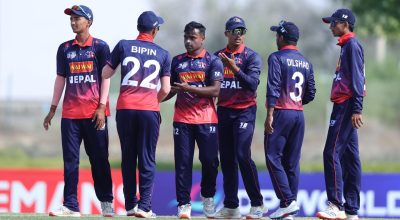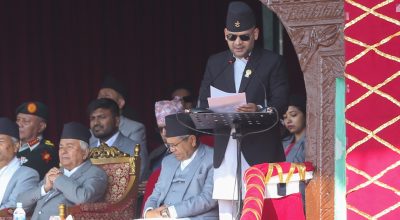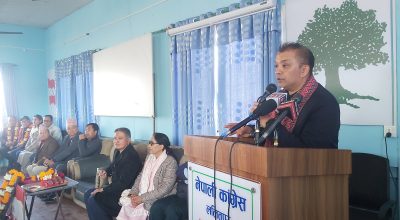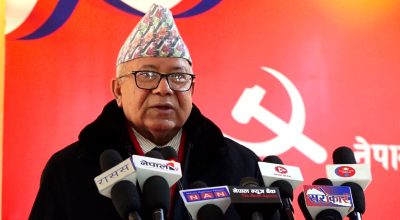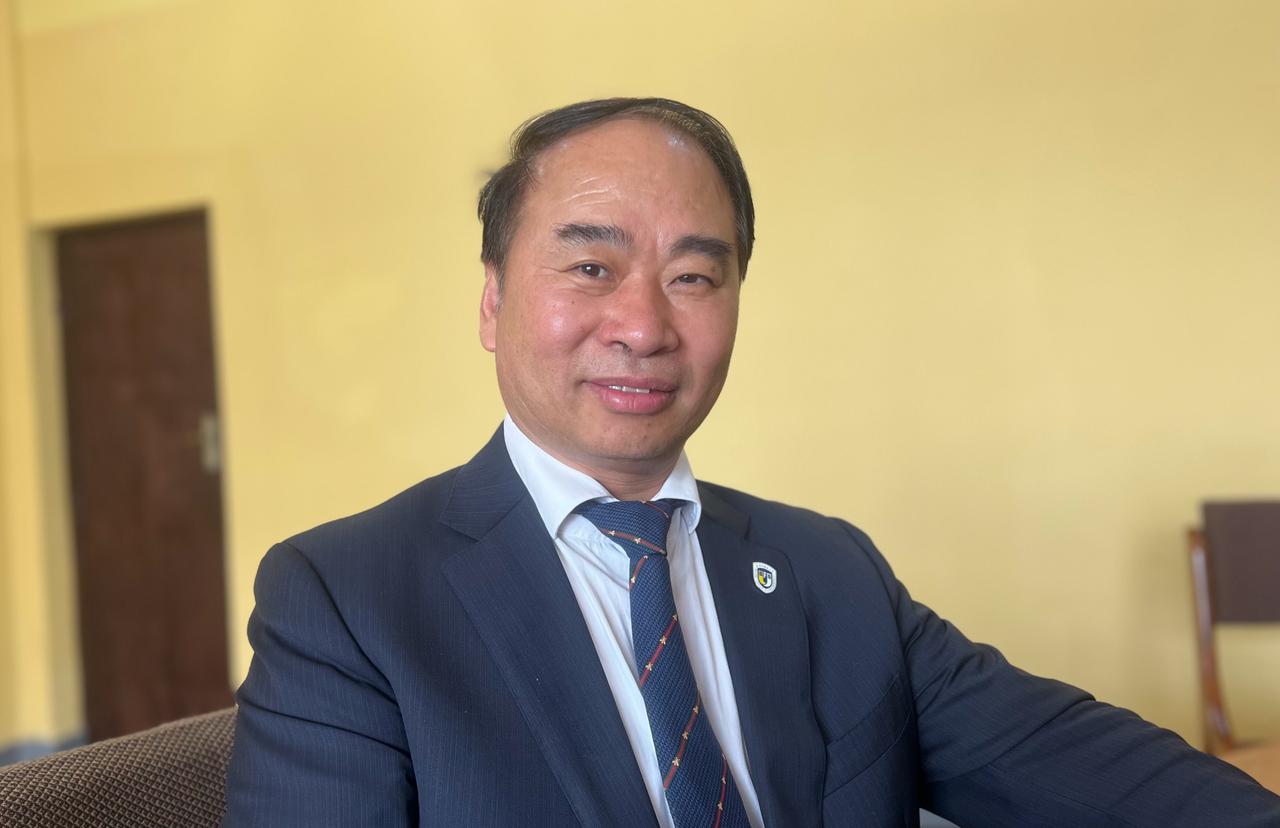
Prof Dr Wang Dinghua, the Chairman of the China’s prestigious Beijing Foreign Studies University, was recently in Kathmandu. Professor Dinghua arrived in Kathmandu to sign a Memorandum of Understanding (MoU) between Beijing Foreign Studies University and Tribhuvan University. On Tuesday, amidst a program at Tribhuvan University, Kirtipur, both side signed and exchanged the MoU. The MoU mainly seeks collaboration on four areas, namely: 1) exchange of students, 2) exchange of faculties, scholars and administrative staff, 3) research collaboration in the fields of mutual interests, and 4) exchange and sharing of academic materials and information.
The editor at newspolar.com Mr Sushil Aryal tête-à-tête with Professor Dinghua in Kathmandu. Here’s the excerpts of the interview:
We have heard that Beijing Foreign Studies University is known as the cradle of diplomats. Could you please briefly introduce the development history of your university?
Beijing Foreign Studies University is one of the top universities under the direct leadership of the Ministry of Education of People’s Republic of China. It is listed under Project 985, Project 211 and Double First-Class Project of China. Founded in 1941, BFSU has developed into a university offering 122 bachelor’s programs, 101 of which are foreign language programs, 44 of which are taught exclusively at BFSU in China. It also offers master’s degrees and doctoral degrees in 6 major fields. According to QS university rankings in 2023, two disciplines of BFSU—linguistics and modern languages—ranked among top 200 globally, higher than other Chinese universities.
To enhance its international influence, BFSU works in partnership with over 300 universities and academic institutions in about 80 countries and regions and runs 23 Confucius Institutes and Classrooms in 18 countries. BFSU has cultivated a large number of qualified professionals with language competence who work in and outside China as diplomats, translators, interpreters, educators, businessmen or businesswomen, journalists, lawyers, bankers, etc. Among BFSU alumni, over 500 have worked as ambassadors, and over 4,000 as counselors.
BFSU is thus known as “a cradle for diplomats”. Today, BFSU continues to pursue excellence, strives to build itself into a world-class university with Chinese characteristics and produce high-quality, dedicated, innovative language professionals with patriotic passion, international horizon, critical thinking, and cross-culture capabilities.
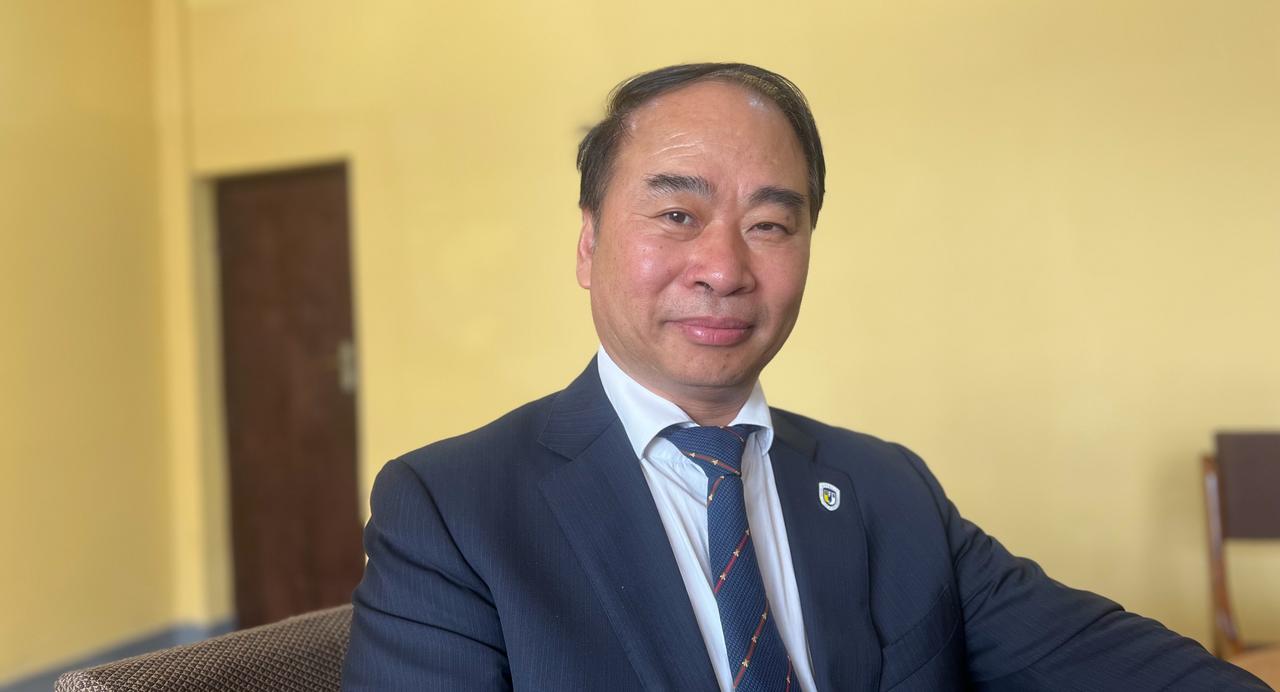
Why did your university, as a leading institution in the teaching and research of foreign languages and literature in China, choose to establish an academic cooperation relationship with Tribhuven University this time?
We know that Tribhuvan University is the first national institution of higher learning and the largest and oldest public university in Nepal, and it is a model of higher education in Nepal. Beijing Foreign Studies University has always hoped to establish ties with top universities around the world to promote people-to-people exchanges and deepen cooperation in the field of education through university exchanges. This is the first time for the delegation of Beijing Foreign Studies University to visit Nepal, and Tripura University is our first stop to visit the university. We hope that our first meeting will open a new chapter for the high-quality cooperation between Beijing Foreign Studies University and universities in Nepal.
May I ask which academic fields will be the main focus of this collaboration? What are your university’s suggestions and ideas?
Our University plans to strengthen exchanges and connections with well-known universities in Nepal, including Tribhuvan University, mainly focusing on Nepali, Sanskrit and Pali language teaching, digital teaching resource development, field practice, textbook collaboration, joint short-term training, and other fields to carry out teacher-student exchanges and joint research. We will cooperate to organize various academic activities, in order to achieve academic resource sharing and assist in the cultivation of Nepali, Sanskrit and Pali language professionals.
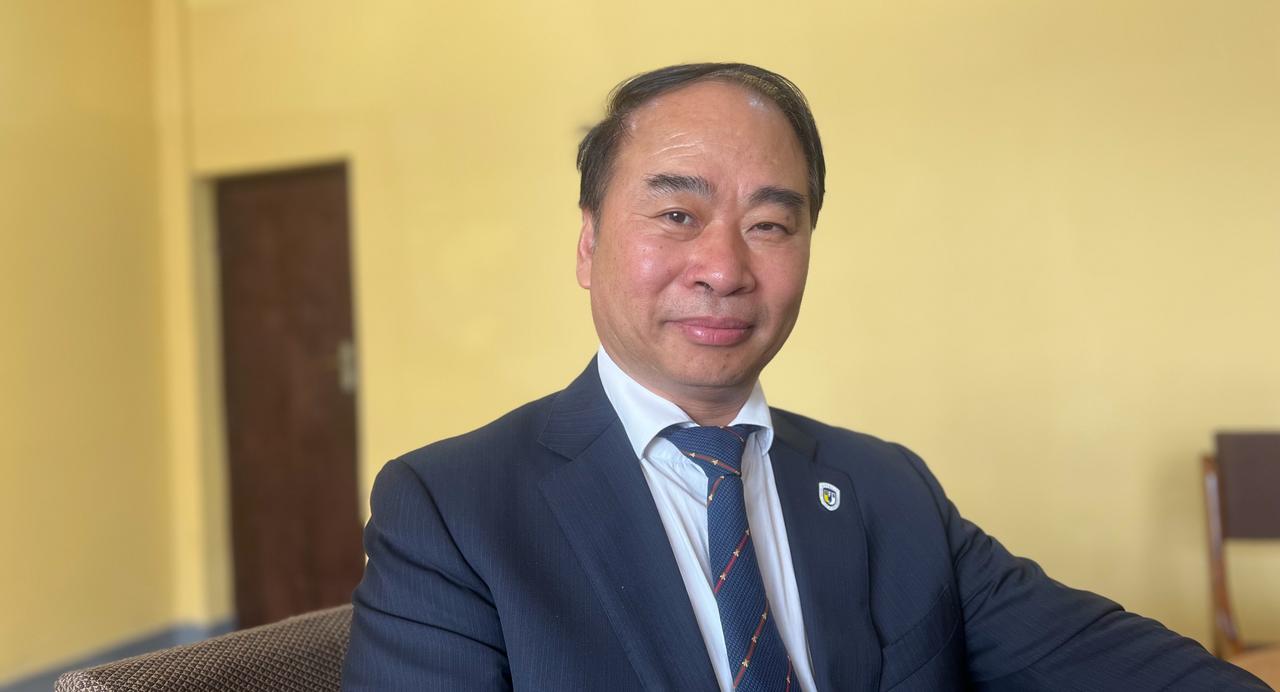
We heard that your Nepali language major has a high development starting point, and we are curious why your university chose to offer Nepali language major? What courses do Nepali language majors in China take? What is the level of Nepali language teaching faculty at your university?
BFSU actively takes on the role of universities in building an education powerhouse, coordinates the domestic and international situations, and plays a supportive, global, leading, and critical role in building an education powerhouse. We have been approved to open 101 foreign languages’ teaching, the Asian and African language groups are currently one of the largest less-commonly used foreign language construction bases in China. Our university adheres to the national strategy of serving the country and has now adopted the official language of countries that have established diplomatic relations with China. The four-year undergraduate teaching of Nepali language major is divided into the first and second year basic stage and the third and fourth year advanced stage.
The courses offered in these two stages include Elementary Nepali, Intermediate Nepali, Communicative Nepali, Nepali Grammar, Social and Cultural Studies of Nepal, etc. in the basic stage, as well as Advanced Nepali, Listening and Speaking in Nepali, Practical Translation and Interpretation, Nepali Writing, Nepali Literary History, etc. in the advanced stage. The Nepali language major of Beijing Foreign Studies University has been selected as a first-class undergraduate major construction site in Beijing in 2021, and continues to have a leading advantage in the ranking of Nepali language majors in Chinese universities.
The School of Asian Studies, where your Nepali language major is located, is also a college with a long history of development. In the current era of continuous reform and development in higher education, what is the development positioning of the Asian Studies School?
The School of Asian Studies has broken the traditional model of foreign language and literature, and developed a comprehensive college construction model that integrates language teaching, professional construction, talent cultivation, country and regional research, and think tank construction. With language teaching as the foundation and country and regional research as the characteristics, it further improves the level of talent cultivation and strives to develop into a high-end platform for cultural exchanges between China and Asian countries. #nepal #china





